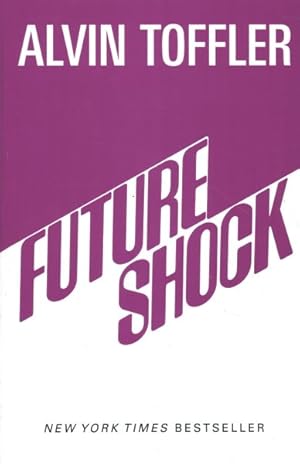
I left the record store clutching the CD in my hands. It was the second instalment from Britpop idols Blur in the form of their latest studio album. They hadn’t yet hit the highlight of their Parklife album but this album promised much. It’s title, ‘Modern Life is Rubbish’.
The album explored suburban England in all its glory and prejudices. Shades of the Kinks and Paul Weller lending a cynicism to proceedings. Was this merely the musings of the disaffected or did they have a point. Is modern life rubbish? This environment we live in, always ‘switched on’, always been demanded of, and yet always been offered something to fulfil our desires. Instant Karma. The causality of your actions is immediate. Surely our desires should be fulfilled, as John Lennon said in the song of the same name, “Why in the world are we here, surely not to live in pain and fear?” But, I ask, does the unmitigated and, for many, instant fulfilment of our desires ultimately make us happy, or have we been sold a dud? Much like Blur’s second album turned out to be (in my opinion!)
There is a struggle going on for many in the world and that struggle is with their mental health. The experience of emotional exhaustion from the onslaught of this ‘modern life’ goes hand in hand with poor mental health and has a consequent negative impact on physical health. This leads to being absent, if not physically, but emotionally and cognitively, from work, family, and social networks which are exactly the sort of things that can promote good mental health. Yes, even work! Work brings with it huge social and psychological benefits but only when it works in harmony with taking care of yourself and your relationships and engaging in self-care that builds resilience resulting in strong physical and mental health. ‘Work’ and ‘Life’ is a two-way street. We carry our emotions, positive and negative between them in the suitcase of our mind and the emotions we carry can help or hinder us depending on their influence. Bertie Forbes the founder of Forbes magazine said that how we spend our time away from work largely influences how we spend our time at work. It works in the other direction as well.

When you consider where the problem might lie in how many of us feel about our whole lives it’s a complex mix of our biology and chemistry, of personal responsibility to do the right thing (or to do better things), how organised we are, how we control what we are responsible for, and the environment we have to do it all in. We can control some of these things like whether or not we go for a walk, or take a break, or have a glass of wine. We can’t control some of these things like how much work we are asked to do, or that the dishwasher needs to be emptied, or the car needs to go to the garage for a service. In between these two binary positions there are things that we can’t control but that we can have influence over. We can talk to daughter Daisy about whether she really needs to be taken to another ballet class or football coaching session on a Saturday and (hopefully) we can talk to our manager about the amount of work we have to do (that we maybe can’t do, or don’t have the time to do). And sometimes, maybe to Daisy, we can say ‘no’. But we’re not very good at saying no are we. To Daisy or our manager. As a consequence, we say yes to sleepless nights and a whole bottle of wine and feeling awful about… well… everything. The problem when it comes to saying ‘no’ is that saying ‘yes’ makes us feel really good while saying ‘no’ doesn’t. We need to get over this. Saying ‘yes’ to something means you will have to say ‘no’ to something else at some point as there are only so many minutes in the day. Saying ‘yes’ to everything will ultimately short-change all activities.

This is an interesting phenomenon. There is a psychological disconnect between knowing what we should do (saying ‘no’) and the act of doing it. And it’s the same in many areas. I think you would be hard pushed in large parts of the world to find people who don’t know that exercise is good for you, or that processed food isn’t, or that we waste an inordinate amount of time mindlessly scrolling through social media. Yet in many nations of the world obesity is a huge problem brought on by lack of exercise and poor diet and people talk endlessly about how much time they waste on Twitter and Facebook! We know we should put our phones down and talk to our family over dinner, we know we should get outside and exercise, and we know we should eat well, yet we often exhibit limited self-control in these areas. We know that people who have more self-control are happier. Yet in the face of the evidence, we don’t do what we know we should. The more choice we have the more chance we have of choosing badly.
We’re not designed for this world. Honestly, we’re not. Alvin Toffler in his book Furtureshock, written in 1970 about what life would be like in this century, talked about the incessant change that would dominate the world. He talked about many of us having an ‘abrupt collision’ with the future for which we are, from an evolutionary perspective, ill-prepared for. Don’t get me wrong here I’m not wholly on board with Albarn et al’s indictment that Modern Life is Rubbish. It isn’t. We live in miraculous times. But we live in times that we are not biologically and chemically designed for. We are designed to get scared of something then work off the adrenaline and cortisol that our amygdala and hypothalamus flood us with by fighting the thing in front of us or running away from it. A useful response for a cave dweller but not for a business administrator. Modern Life is not in sync with what we are. Evolution may eventually catch us up but evolution is not a thing in a hurry.

There are many things that create a tension between what we are and where we are. Until not that very long ago, in fact for most of recorded history up until the industrial revolution, happiness expert Professor Daniel Gilbert of Harvard University tells us that having to make decisions for ourselves that may or may not fuel our happiness was not on our agenda. It is a fairly modern phenomenon. Up until not so long ago we were born, did what our parents had done, and socialised with a very tight group of people. Modern life has provided many of us with a more affluent and stable position than our predecessors with many of the hardships for most of us resigned to the history books. We now have different ‘hardships’ to endure. Many of us have options and choices to be whoever or whatever we want to be yet somehow it seems that such potential opportunities are not good for us if the evidence about the prevalence of ‘common’ mental health problems is anything to go by.
Choice is problematic. When we make a choice the choice we make is not the only thing in the game. There are many other factors – some of which we have influence over and some we don’t – that will influence the outcome. When we had less choices to make we naturally made less choices so had – in terms of volume – less outcomes to deal with. Now we make immeasurable (I’m sure) amounts of choices every day. More choices then more chances we don’t like the outcome. I’m sure this is at the root of many of our modern day problems.
‘Keep it simple’ might well be a solution.


